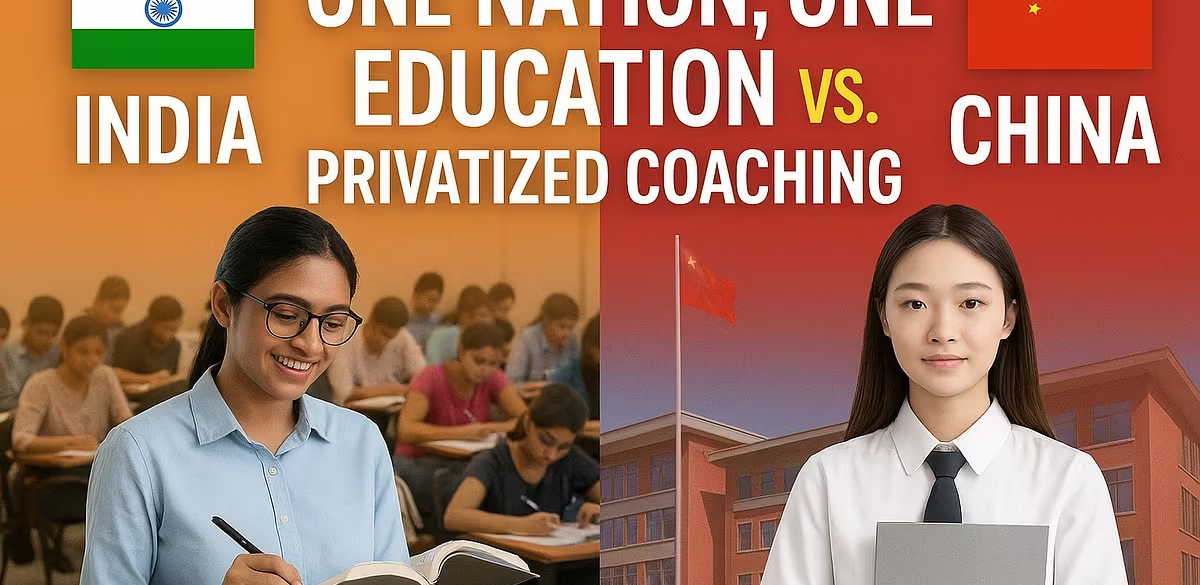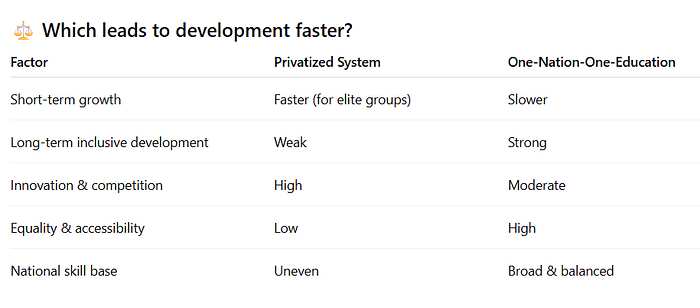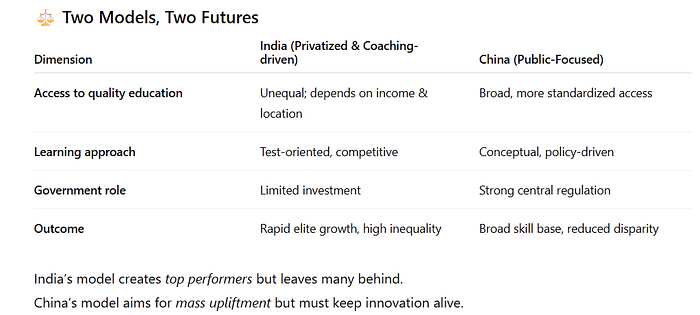One Nation, One Education vs. Privatized Coaching: Which Path Builds a Truly Developed Nation?
Medium | 11.11.2025 13:16
One Nation, One Education vs. Privatized Coaching: Which Path Builds a Truly Developed Nation?
3 min read
·
Just now
Education is the foundation of every nation’s future.
It shapes the economy, social harmony, and the opportunities available to each citizen.
But in today’s world — especially in countries like India — education is becoming less of a right and more of a race.
Coaching institutes and private schools dominate the landscape, while public schools struggle for attention.
So the question is:
👉 Can a country truly develop through privatized education and a coaching-driven culture?
Or does the path to real progress lie in a One Nation, One Education vision — equal learning opportunities for all?
🇮🇳 India: Privatization, Coaching, and the Inequality Dilemma
In India, the education sector has become one of the largest private markets in the world.
From IIT-JEE and NEET to UPSC and CAT, coaching centers have become parallel education systems — sometimes more influential than schools themselves.
While this has produced brilliant engineers, doctors, and technologists, it has also deepened financial and social inequality.
- Nearly 1 in 3 Indian students attends private coaching.
- Families spend huge sums chasing ranks and marks.
- Public schools often lack teachers, resources, or even basic infrastructure.
- Success depends more on affordability than ability.
This creates a divided nation — one part racing ahead, another left behind.
India’s model drives growth for some, but not development for all.
🇨🇳 China: The Public-Focused Turnaround
China took a radically different route.
For decades, it invested heavily in universal public education — strengthening schools, training teachers, and maintaining nationwide curriculum standards.
Then in 2021, China made global headlines with its “Double Reduction” policy, which banned for-profit tutoring in core school subjects.
The government wanted to:
Reduce exam pressure, lower family expenses, and level the education field.
The impact was massive — the multi-billion-dollar tutoring industry shrank overnight.
Though controversial, the policy reinforced one belief:
Education is a public responsibility, not a private commodity.
Challenges remain, of course — rural disparities, underground tutoring, and exam culture still persist — but China’s direction is clear: prioritize equality over commercialization.


🌍 Which Path Leads to True Development?
Development isn’t just about GDP or global rankings.
It’s about how evenly progress is shared.
Get Harshal Raj’s stories in your inbox
Join Medium for free to get updates from this writer.
A country that wants sustainable growth must balance equity and excellence.
Here’s how:
1️⃣ Strengthen Public Education
Invest in teacher training, infrastructure, and digital access.
A strong public system ensures every child, rich or poor, starts from a fair baseline.
2️⃣ Regulate Coaching & Private Institutes
Instead of banning them, make them affordable, transparent, and aligned with national learning goals.
3️⃣ Redefine Success
Move away from marks and ranks — measure creativity, problem-solving, and real-world skills.
4️⃣ Encourage Innovation, Not Exploitation
Allow private and ed-tech players to innovate, but hold them accountable for inclusivity and ethics.
🚀 The Way Forward for India
If India wants to become a developed nation by 2047, it must view education not as a product but as a public investment.
That means:
- Raising public spending on education (currently ~3% of GDP).
- Reviving government schools with dignity and resources.
- Reducing the dependence on private coaching for learning outcomes.
- Building a system that values thinking over rote learning.
💬 Final Thought
Coaching institutes may produce toppers,
but only inclusive education produces a nation of thinkers.
A truly developed country isn’t defined by the number of billionaires it has
but by how many of its children can dream freely, learn equally, and rise without barriers.









